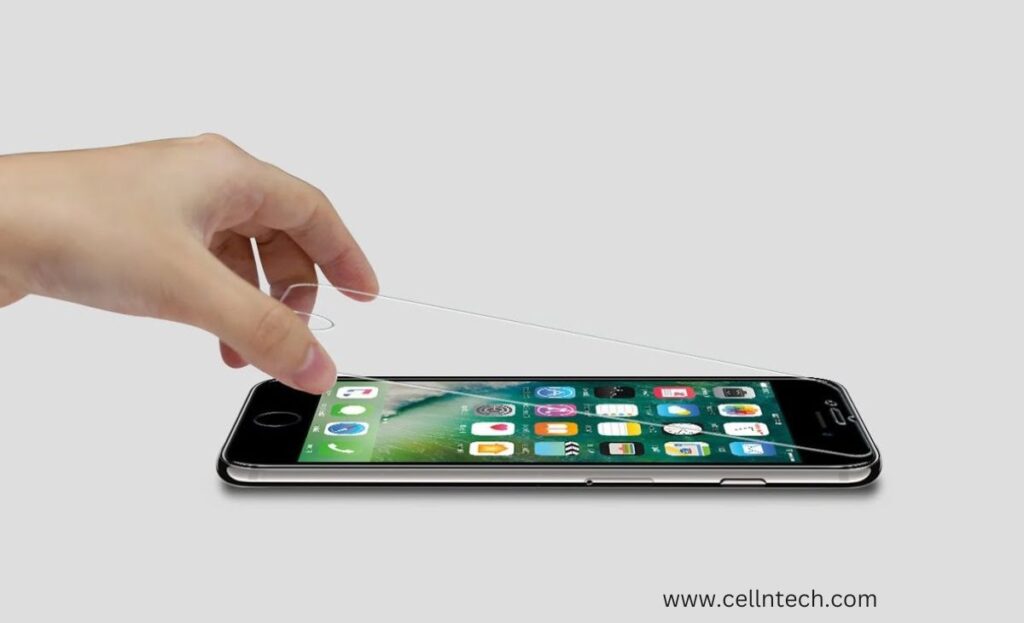Phone
How To Take Off Tempered Glass Screen Protector?
Taking off a tempered glass screen protector is a delicate process. Begin by powering down your device and using a plastic card to lift the protector’s edges gently. Applying heat with a hairdryer helps loosen the adhesive, facilitating a slow and steady removal. Clean any residue with isopropyl alcohol and a microfiber cloth. Finally, dispose of the old protector responsibly and celebrate your clear screen.
Tips to Take Off Tempered Glass Screen Protector
1. Gather Your Tools
First things first, let’s assemble our toolkit. You’ll need a couple of handy items:
- A plastic card (like a credit card or ID)
- A hairdryer
- Isopropyl alcohol
- Microfiber cloth
These tools will be your trusty companions on this screen protector removal journey.
2. Power Down Your Device
Before you start any screen protector removal magic, power down your device. It’s a small precaution but an important one. We want to make sure your device stays safe and sound throughout the process.
3. Use a Plastic Card
Now, grab that plastic card we mentioned earlier. Slip it between the screen protector and the phone, gently prying the edges. The plastic card is your secret weapon – it’s flexible enough not to damage your phone but sturdy enough to lift the protector away.
4. Apply Heat with a Hairdryer
For stubborn screen protectors that refuse to budge, heat is your friend. Use a hairdryer on low heat and wave it over the protector for about 15-20 seconds. The heat helps loosen the adhesive, making it easier to peel off. Just be cautious not to overheat and damage your device.
5. Slow and Steady Wins the Race
As the adhesive starts to loosen, begin peeling the screen protector from one corner. Take it slow and steady, applying more heat if needed. If you encounter resistance, stop and add a bit more heat to that area. The key is to be patient and gentle to avoid any mishaps.
6. Clean Up the Residue
Once the screen protector is off, you might be left with some sticky residue. Fear not! Dampen a microfiber cloth with isopropyl alcohol and gently wipe away the adhesive. This will ensure your screen is clean and ready for its next protector.
7. Check for Remaining Debris
Inspect your device’s screen for any leftover adhesive or debris. If you find any, use the microfiber cloth and a bit of isopropyl alcohol to clean it off. A pristine screen is the goal!
8. Install Your New Protector
With the old screen protector gone, it’s time for a fresh start. If you’re replacing it with a new protector, follow the installation instructions carefully. Make sure your screen is clean and free of any residues before applying the new protector.
9. Dispose of the Old Protector Responsibly
Let’s be eco-friendly! Instead of tossing your old screen protector into the regular trash, check if there’s a recycling program in your area that accepts electronic accessories. Some manufacturers or retailers offer recycling options for screen protectors.
10. Celebrate Your Clear Screen
Congratulations! You’ve successfully removed your old tempered glass screen protector and given your device a clean slate. Now, whether you’re admiring your phone’s sleek display or gearing up for a new protector, you can do so with the confidence that comes from mastering the art of screen protector removal.
Conclusion
In a nutshell, for cleaning tempered glass screen protectors taking off protectors doesn’t have to be a nerve-wracking experience. With the right tools, a bit of heat, and a touch of patience, you can seamlessly transition from old to new. CellNTech is here to guide you through every tech twist and turn, ensuring your devices stay in tip-top shape. Happy peeling
Frequently Asked Questions
Q1. Are tempered glass screen protectors hard to remove?
Removing tempered glass screen protectors can be relatively easy with careful peeling and lifting. However, the difficulty may vary based on the quality of the adhesive used during installation.
Q2. Does removing tempered glass damage the screen?
When removed correctly, tempered glass screen protectors should not damage the screen. The tempered glass is designed to absorb impact and scratches, leaving the device’s screen unharmed during removal




